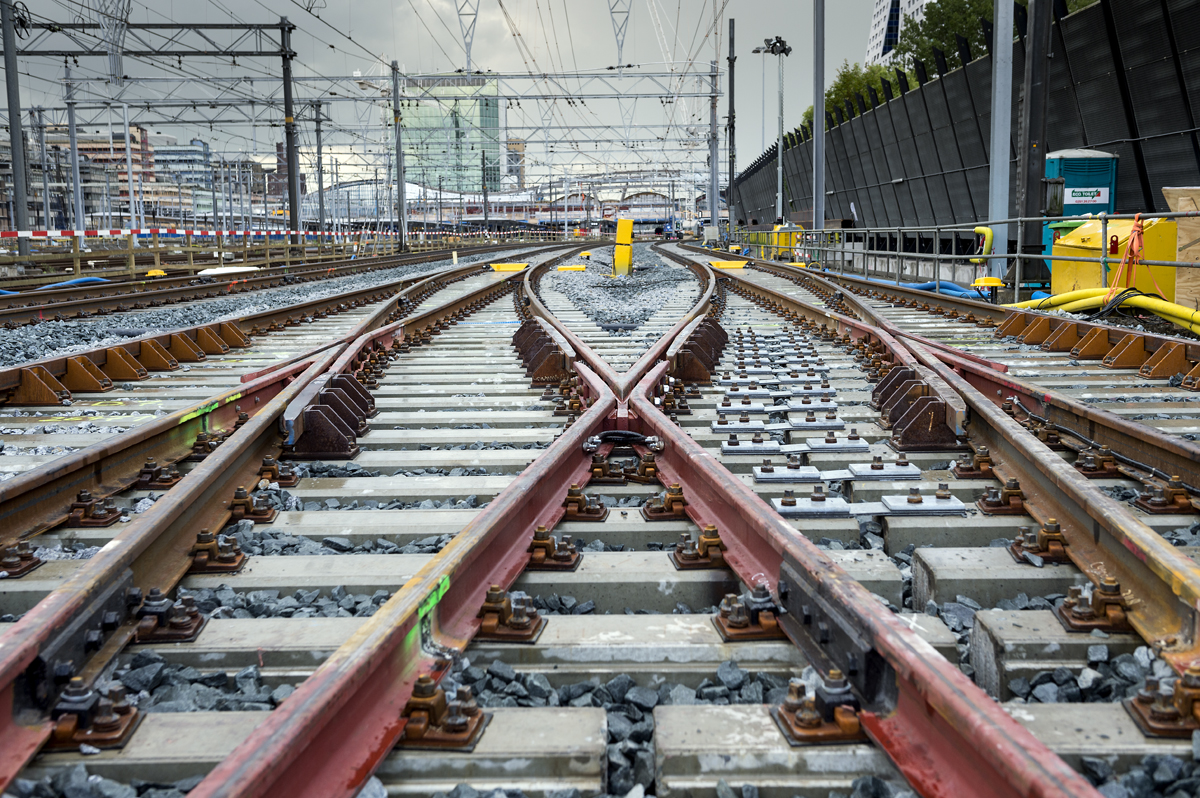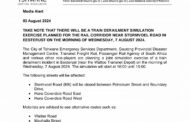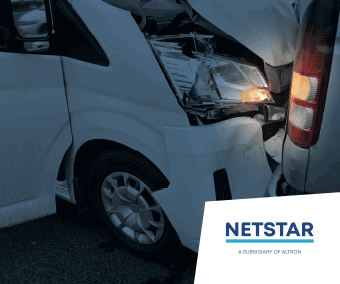The 7th World Congress on Rail Training (WCRT), co-organised by the International Union of Railways (UIC) and Southwest Jiaotong University (SWJTU), officially opened today in Chengdu, China. This major international event brings together railway industry leaders, experts, and young professionals from over 24 countries to discuss the future of railway training, exchange best practices, and explore new strategies for skills development in a rapidly evolving sector.
The opening session was moderated by Xin Ling, Deputy Director of International Cooperation at Southwest Jiaotong University. With her warm and friendly presence, she extended a welcome to the participants in Chengdu and introduced the different speakers. Her moderation set the tone for the day, underscoring the spirit of dialogue, knowledge-sharing, and international cooperation that characterises the congress.
A global commitment to training excellence
Opening the congress, UIC Director General François Davenne highlighted the critical role of training in shaping the future of rail transport:
“Railways are undergoing a profound transformation. From digitalisation to decarbonisation, the skills needed to operate, maintain, and innovate within our networks are evolving rapidly. WCRT is a crucial platform for bringing together expertise, exchanging best practices, and ensuring that railway professionals worldwide are equipped for the challenges ahead.”
Davenne also reaffirmed UIC’s mission to foster global cooperation, ensuring that training remains at the forefront of the industry’s sustainable growth and technological evolution.
The opening ceremony featured a strong commitment from Chinese railway leaders, reinforcing China’s leadership in railway education, research, and workforce development.
Cong Li, Director of the Exchange and Cooperation Division, Department of International Cooperation, China State Railway Group Co., Ltd. emphasised the importance of adapting training programmes to technological advancements:
“At present, the world is experiencing a new series of technological development and industrial transformation. The railway industry is also undergoing a profound transformation towards digitalisation, sustainability, and intelligence. The cultivation and training of railway talent form an important cornerstone to support the continuous development of this industry.”
He also outlined China’s major achievements in talent development, mentioning the construction of a multi-level and multi-dimensional talent training system, and the establishment of a continuous talent empowerment mechanism compatible with the rapid development of high-speed rail. He noted that nearly 30,000 front-line core personnel are trained annually in collaboration with railway-related universities.
Yanping Cui Deputy Director of the Foreign Affairs Office of the National Railway Administration praised the successful organisation of the congress and called for enhanced international cooperation.
“The essence of railway connectivity is the connectivity of people. The National Railway Administration of China will continue to support international railway cooperation. We are willing to work with partners around the world to promote technological innovation and talent cultivation to deepen the development of the railway industry.”
Next, Professor Zhongrong Zhou, Vice President of SWJTU, welcomed the participants and highlighted the university’s long-standing contributions to the railway sector:
“For over 128 years, Southwest Jiaotong University has been at the forefront of railway education and research. As we enter a new era of intelligent transport, it is crucial that we equip railway professionals with the knowledge and tools to drive sustainable and high-performance rail networks. We are honoured to host this congress, which serves as a bridge between academic research and industry expertise, bringing together a global community dedicated to shaping the future of railway training.”
Collaboration and innovation at the heart of WCRT
Building on these words, Meryem Belhaj-Clot, UIC Deputy HR Director and Head of HR Development, emphasised that WCRT is more than just an event, that it serves as a catalyst for knowledge-sharing and fosters global cooperation:
“This congress provides a unique platform where we can come together as a global community to share knowledge, challenge ideas, and shape the future of rail training. I encourage everyone to actively engage with the topics-ask questions, challenge preconceptions, and create new connections. The most valuable insights often not only arise in conference rooms but also in informal interactions and through the dynamism of this global network.”
She also underpinned the UIC Talent & Expertise Development Platform’s crucial role in supporting international cooperation and driving innovation in training methodologies.
Miguel Faro Viana, the Platform’s Chair, reinforced the need for a proactive approach to skills development:
“Railways are at the heart of sustainable mobility, and our people are our greatest asset. As technology evolves, so must the skills required to operate, maintain, and enhance our networks. This is why training, upskilling, and knowledge-sharing must remain integral to our strategies. By investing in our people, we are investing in the long-term success and resilience of the railway sector.”
Recognising innovation: The WCRT 2025 Hackathon Awards
One of the standout features of WCRT 2025 was the hackathon challenge, where young professionals addressed real-world railway challenges with fresh and creative solutions. Their efforts were celebrated during the Hackathon Awards ceremony, presented by:
• Ling Xin, Deputy Dean, Tianyou Railway Institute, SWJTU, China
• Vito Pagliarisi, Head of International Training, Development and Compensation, FS, Italy
This year’s winners are:
• 1st Prize: Asia Pacific region – NextGen Platform Automated Platform Accessibility System – Team members: Muhammad Abuzar Sajjad, Md Zahidul Alam, and Lin Yu
• 2nd Prize, tied, with two winners:
• Africa Region – Autonomous Travel Assistance System (ATAS)- Team members: Fatima Zahra Zaher, Wilcis Marc Martel Molomba Mounguengui, Salma Doubali, Mouad Ajinou, and Mostapha Ait Boujemaa
• Asia-Pacific region – HarmonicHawks Proactive Catenary Maintenance: Arc Detection and Localisation – Team members: Shun Yang, Zhixiang Chen, and Jiahui Nie
• 3rd Prize: Middle East region- RAILogis Smart Comfort Suspension Using AI (SCS AI) – Team members: Paniz Mahdavi Saei, Ali Samarghandi, Soheil Jangi Zehi Shastan, Sana Enayati, and Mobina Lorestani
Congratulating the winners, Belhaj-Clot said:
“WCRT is fundamentally about action and creativity. Nothing embodies this spirit better than the Hackathon Challenge, where the participants have worked diligently to tackle real challenges within the industry using fresh and innovative approaches. Their dedication and ingenuity underscore the immense potential of the next generation of railway professionals.”
Acknowledging our partners and sponsors
The success of WCRT 2025 was made possible thanks to the invaluable support of its partners and sponsors. UIC extends its sincere gratitude to:
• Its partners: National Railways of France (SNCF), Italian State Railways (FS), and Slovenian Railways (SZ)
• Its platinum sponsors: CRRC Changchun Railway Vehicles Co., Ltd., and Yunda Ltd.
Their commitment to advancing railway training and professional development is instrumental in fostering global cooperation and innovation, and facilitating knowledge-sharing.
Looking ahead: A shared commitment to the future
WCRT 2025 will continue over the next three days with expert panels, interactive sessions, and networking opportunities, addressing key issues impacting the future of rail training.
As Davenne concluded:
“We stand at a crossroads where training must evolve alongside technology. The ability to anticipate and adapt for the future will define the success of railway networks worldwide. By working together and investing in the continuous development of railway professionals, we are shaping the future of an industry that remains essential to global transport and sustainability.”
























